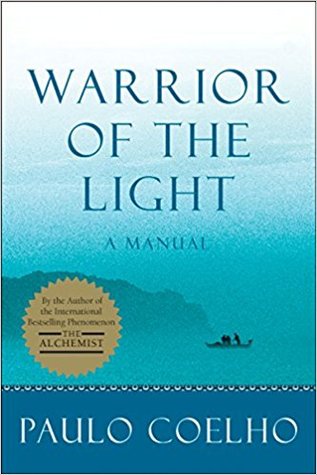More on this book
Community
Kindle Notes & Highlights
he rarely discusses his plans.
The Warrior of the Light hears comments like: “There are certain things I’d rather not talk about because people are so envious.”
When he hears this, the Warrior laughs. Envy cannot harm you, if you don’t let it. Envy is part of life and everyone should learn to deal with it.
However, he rarely discusses his plans. And sometimes people believe this is because he is afraid of envy.
But he knows that whenever he talks about a dream, he uses a little bit of the energy from that dream in order to do so. And by talking, he runs the risk of spending all the energy he needs to put the dream into action.
A Warrior of the Light knows the power of words.
A Warrior of the Light knows the power of words.
The Universe does not judge; it conspires in favor of what we want.
The Universe does not judge; it conspires in favor of what we want. That is why the Warrior has the courage to look into the dark places of his soul in order to ensure that he is not asking for the wrong things.
And he is always very careful about what he thinks.
Jesus said: “Let your yea be yea; and your nay, nay.” When the Warrior takes on a commitment, he keeps his word.
The Warrior of the Light has learned that God uses solitude to teach us how to live with other people.
The Warrior of the Light has learned that God uses solitude to teach us how to live with other people.
He uses rage to show us the infinite value of peace. He uses boredom to underline the importance of adventure and spontaneity.
God uses silence to teach us to use words responsibly. He uses tiredness so that we can understand the value of waking up. He uses illness to underline the blessing of good health.
God uses fire to teach us about water. He uses earth to explain the value of air. He uses death to show us the importance of life.
The Warrior knows that a great dream is made up of many different things, just as the light from the sun is the sum of its millions of rays.
“If you cannot meditate, you should repeat one simple word, because this is good for the soul.
There are times when the Warrior’s path becomes merely routine.
Then he applies the teaching of Rabbi Nachman of Breslov:
“If you cannot meditate, you should repeat one simple word, because this is good for the soul. Do not say anything else, just repeat that word over and over, innumerable times. Finally, it will lose all meaning, but take on an entirely new significance. God will open the doors and you will find yourself using that simple word to say everything that you wanted to say.”
When he is forced to perform the same task several times, the Warrior uses this tactic and transforms work into prayer.
“How will this affect the fifth generation of my descendants?”
Before making any important decision—declaring a war, moving with his companions to another plain, choosing a field in which to sow seed—the Warrior asks himself: “How will this affect the fifth generation of my descendants?”
A Warrior knows that everything a person does has enduring consequences and he needs to understand what kind of world he is leaving behind for that fifth generation.
The cup of suffering is not the same size for everyone.
“When you have managed to overcome grave problems in a relationship, do not spend time remembering the difficult times, concentrate on the joy of having passed yet another of life’s tests.
“You knew that the bells at the bottom of the sea were not just a legend, but you could only hear them when you realized that the wind, the seagulls, and the sound of the palm fronds were all part of the pealing of the bells.


